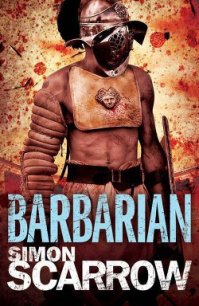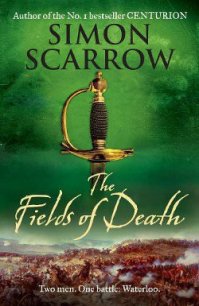Young bloods - Scarrow Simon (читать книги полностью без сокращений txt) 📗
Shortly after noon a cloud of smoke appeared above the dockyard and flames licked up from the naval workshops and warehouses. In the following hours the allied frigates took on boatloads of soldiers and civilians, and it was clear that the enemy intended to abandon the port, destroying as much of it as possible before they quit Toulon. Out to sea the great ships of the line of the Royal Navy looked on helplessly as their commander did not dare expose them to the French batteries that could sweep the inner harbour with heated shot.
As soon as the first of his guns was ready Napoleon gave the order to open fire and the French kept up a harassing bombardment while the daylight lasted.The fires in the dockyard continued to burn through the dusk and into the night, illuminating much of the port in a hellish orange hue. More fires bloomed amongst the captured warships that the enemy was forced to leave behind and then, as the flames reached the powder deep in the hulls of the ships they blew up in a series of blinding flashes, unleashing a succession of deep roars that echoed round the harbour.
At midnight, Lieutenant Junot joined Napoleon in the tower and they watched the destruction in shocked silence.
At length Junot muttered, 'God help those poor souls over there.'
Napoleon turned to him with a curious expression. 'They're our enemy, Junot. This is what war is about.'
'I realise that, sir.' Junot shrugged. 'But I cannot help feeling pity.'
Napoleon considered this for a moment before he replied, 'War is a terrible thing. The best we can hope for is to fight it efficiently, so that the result comes quickly and as few people die as possible. To that end we cannot afford pity, Junot.'
'You may be right, sir.' Junot stared back across the harbour and continued softly. 'But God help them anyway.'
When the sun rose the next morning, the dockyards still smouldered and the charred skeletons of buildings and warships stood gaunt and black against the distant grey mass of Mount Faron. There were no enemy ships left in the inner harbour and out to sea Napoleon could just discern the faint white smudges of the sails of the British fleet slinking off in humiliation.
Just after nine o'clock Junot directed his attention to the heart of Toulon. Raising the telescope, Napoleon panned across the red-tiled roofs until he saw a flash of white and blue: the flag of the Bourbons, slowly being hauled down from its mast above the port's garrison. A moment later, the tricolour rose up in its place, lifted to the breeze and unfurled.
'It's over then.' Napoleon felt strangely empty, and tired. After so many weeks of planning for this moment, of dedicating his every waking moment to the fall of Toulon, there was little sense of triumph, merely exhaustion. 'We've won.'
'This is your victory, sir.' Junot smiled. 'It was your plan, and it succeeded far better than anyone could have hoped.'
'Thank you, Junot.'
They were interrupted by the sound of footsteps on the stairs and as they turned to look Captain Muiron emerged from the staircase and approached them. He was smiling as he stopped and saluted. Then he drew a sealed envelope from inside his filthy jacket and offered it to Napoleon.
'Dispatch from representatives Saliceti and Freron, sir.'
Napoleon broke the seal, scanned the message, then reread it more slowly before he finally looked up.
'It seems I am to be promoted to brigadier.'
'Congratulations, sir,' Junot grinned. 'It's no more than you deserve.'
Napoleon looked at the letter again.Three months ago he had been a lowly captain, struggling to find a patron. Now, he was to be a brigadier. That was a swift rise for a soldier by any standard, and he wondered just how far such a man might go in this world.
Chapter 82
Flanders, May 1794
Lord Moira's reinforcements had landed in Ostend just in time to abandon the port. The French had broken through the Austrian line and were threatening to cut the reinforcements off from the rest of the British Army, itself already in full retreat towards Antwerp. Lieutenant Colonel Arthur Wesley reined his horse in and sat for a moment watching his regiment march past.The men of the 33rd Foot seemed to be in fairly good spirits, given that they were about to make a forced retreat across the face of the advancing enemy columns. That would change after a hard day's march. Most of the men were seasoned enough, but like other regiments in the rapidly expanding army, there was a leavening of raw recruits – men who were either too old, or little more than boys; men who had poor constitutions or were simple in the head. Arthur felt some pity for them. In the days to come they would suffer the most and be the least likely to survive.
He twisted round in his saddle and looked back down the road to Ostend. A thick column of smoke rose lazily into the air above the depot. Lord Moira had given orders to burn all stores and equipment that could not be carried by his men and wagons. To Arthur, it seemed like a scandalous waste. Much of the equipment was brand new and was going up in smoke even before it had been used. But there was no helping it. How much worse it would be to permit the equipment to fall into French hands.The French offensive had caught the allies by surprise and now they were in complete disarray and falling back before the fanatical armies of the revolution. It was hard to believe that the fortunes of war could be reversed so comprehensively. Only a year ago the Austrian army, after inflicting a number of defeats on the French, could have rolled across the north of France and stormed Paris – the heart of the revolution. But Prince Frederick Saxe-Coburg had been content to inch forward across a wide front, and now the allies were paying the price for his indolence.
'Keep the pace up there!' a sergeant yelled at the men marching at the rear of the column. 'Unless you want a French bayonet up your arse!'
Someone blew a loud raspberry and the men laughed as the sergeant came running up from the rear of the column to look for the culprit. 'Which one of you bastards just signed 'is own death warrant?'
The soldiers fell silent, but could not help grinning.
'Nobody, eh?' the sergeant smiled cruelly. 'Well, I 'as me ways of finding out.When I do, I'll tear the bugger's throat out, so help me.'
Arthur walked his horse on, and the column tramped away from Ostend, marching across the Austrian Netherlands to the safety of Antwerp. Even though they had been sent to protect these people from the armies of France, Arthur had seen that the sympathies of the locals were with the revolutionaries. He could understand it. The continent of Europe was a patchwork of kingdoms, principalities and provinces traded between the great powers like cards. Now France extended to them the prospect of revolution, a chance to decide their own fate. Except that the revolution was a sham. There was no brotherhood of man amongst the leaders of the revolution, just a ragtag collection of petty-minded despots clutching onto the reins of power at any cost. The people of the Vendee, Lyons, Marseilles and Toulon had discovered that all too clearly, and now the survivors of those who dared to question the power of the demagogues in Paris walked through a landscape of torched villages and putrefying corpses.
'Penny for your thoughts, Arthur.'
Arthur looked round and saw Captain Richard Fitzroy and his mount moving up alongside. He touched the brim of his hat and Arthur responded in kind. Fitzroy was one of his company commanders and adjutant and had joined the 33rd just after Arthur had taken command. His brother had lent him the money to buy a lieutenant colonel's commission and Arthur had been preparing the 33rd for war since the autumn of 1793. Despite the difference in rank Captain Fitzroy and Arthur were the same age and firm friends. Good enough for Fitzroy to dispense with the formalities when duty did not demand them.




